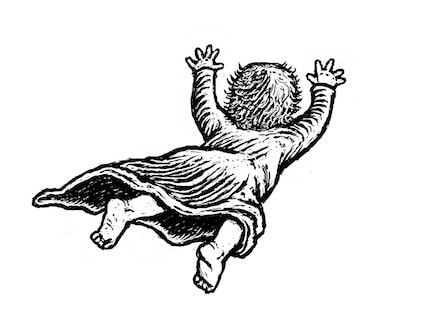|
How do I become a writer?
This is a question I get fairly often, and here, in a large nutshell, is my answer. WRITE Write anything. I haven’t taken a creative-writing class in thirty-five years. But in those three decades (and yes, that makes me feel ancient) I’ve written a gazillion research papers for high school, college and grad school; I edited two books; I wrote museum wall plaques; I wrote installation manuals; I copy-edited magazine ads; I wrote grant proposals for an architectural firm; I wrote a catalog for a pool-supply company; I wrote ten screenplays, with multiple drafts of each script; I wrote many, many letters to the editor, most unsent, the rest unpublished . . . I wrote a lot. And every single one of these experiences made me a better writer. The ability to write clear, compelling prose crosses every discipline. If you can explain how to assemble a gizmo so that anyone can do it, you’re that much better off the next time you to have to compose a descriptive paragraph. So write. Write for your school newspaper, yearbook, clubs. Write a blog. Write a screenplay, my own favorite writing experience. It won’t be very good – my scripts were horrible at first, then with experience they became slightly less horrible – but I learned so much. Get a job with a business – a realtor, say – writing descriptions. Write for a local news source. If you wanted to become an amazing runner, how would you start? Same applies here. READ Of course you should read the type of books you want to write, but I recommend reading them several times. The first time is for the story, but then savor the author’s accomplishment. How did the author build suspense, create romance, construct sympathetic characters? What about the dialog appeals to you? What would you change? No book is perfect, even if it’s been published. Writers learn from other writers. LISTEN I say this over and over again – mainly because it took so many years for the truth to sink into my thick skull – but the criticism you receive, painful as it may be, will only make your writing better. If a reader doesn’t understand what you’re trying to say, it’s because you’re not writing clearly enough. Anyone who makes the effort to think about your writing – to question a particular word, to wonder about dialog, to scratch their head at your conclusion – must be taken seriously. Trust me, it’s far easier for a reader to mutter “oh, it’s fine” and be done with it. That’s what someone who doesn’t care would tell you. This isn’t to say that criticism is a trip to Disneyworld. It stinks. Even when you’re an official grown-up published writer, it stinks. I have on many occasions thought horrible thoughts about my editor and her awful, mean, cruel comments. Luckily I’ve kept these thoughts to myself until I calmed down enough to recognize that her questions and suggestions were brilliant, and they made my writing much, much better. So listen. DISCARD It’s such a thrill to write something and say, “Look! I wrote it! It’s done!” Unfortunately the act of putting words down on paper, or typing them onscreen, is only the first step. What matters is the far more painful process of editing those words. And a huge part of editing, I’m sorry to say, is throwing some of those words away. Including – especially including – the words you like most. One of the best pieces of advice I ever received was to erase my favorite sentence. At first I thought it was crazy, but then I noticed how often I wrote myself into a literary pretzel to save that one precious little morsel. If preserving this morsel becomes the least bit stressful, toss it. Or don’t toss it but simply put it in a “prose I still love” file (I keep one of these files going all the time), so losing it won’t be so painful. Trust me, in a few weeks’ time you'll discard it without a second thought. On a related note, in college I figured out I should discard the first paragraph of my papers. That paragraph always ended up being a warmup, really, that didn’t help the overall argument. In graduate school, I learned to throw out the first chapter. And guess what? I threw out the first chapter of Dairy Queen (not without prodding, to be sure), and I threw out the first chapter of Princess Ben. So it’s not like this advice becomes irrelevant. STUDY Millions of Americans don’t know its from it’s, or there from their, and they’re fine with it. But some of us care intensely about these differences, just as we care that the first-person singular pronoun should always be capitalized, that the word your’e doesn’t exist, that participles should never dangle. And don't get me started on compound modifiers. (Don't know what a compound modifier is? Look it up!) Learning the rudiments of grammar and spelling will only work to your advantage. The more you know about these writing fundamentals, the better off you’ll be on any job you eventually acquire . . . and the smarter you’ll sound now. |
